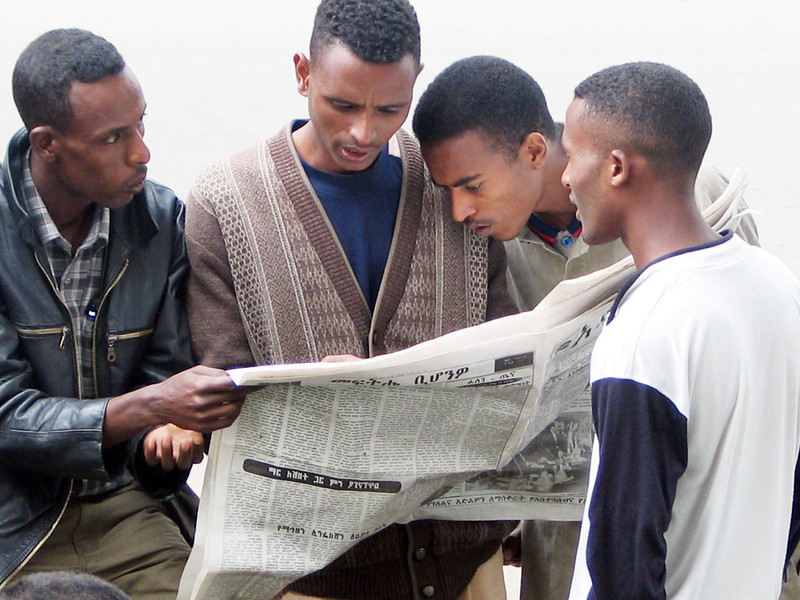We are excited to announce that Brink is now part of Africa Practice. Learn more
South Africa’s electoral commission on 11 May announced the ruling African National Congress (ANC) as the winner of the 2019 elections with 57.5% of the vote, equating to 230 seats in the 400-seater parliament. This is the first time since the end of apartheid that the ANC’s vote share has dropped below 60% in a national election, with the party shedding 19 seats in parliament from its previous term. Meanwhile, the Democratic Alliance (DA) remains the main party of opposition but also with a declining vote of 20.7%, resulting in the party losing five seats to remain with 84 seats in parliament. Julius Malema’s radical Economic Freedom Fighters (EFF) made notable gains to secure 10.79% of the vote, adding 25 seats to gain a total of 44 in parliament. With a handful of small parties making moderate gains, the conservative Afrikaaner-led Freedom Front Plus (FF+) stands out having secured 2.38% of the vote, equating to a gain of six seats to total ten in parliament. Turnout in the elections was 65.99%. Here are five conclusions we draw from the elections:
- President Cyril Ramaphosa’s pledge to tackle “all bad tendencies” in the ANC is likely to face substantial pushback from a party he lacks full control over and accordingly, we anticipate mixed results in the fight against corruption. Ramaphosa was placed front-and-centre during the election campaign to detract from the ANC’s failings and convince voters of the party leadership’s reformist intent after a decade of governance slide under former president Jacob Zuma. But in reality, the ANC is a deeply divided party that has made only tentative steps to holding itself to account by cleaning up the rot within the system. And while Ramaphosa’s intentions are certainly good, he faces a series of political limitations that may impact his intent and capability to re-shape the party in a different mould. In the run-up to the elections, the ANC’s branch-led internal voting system to determine the order of its candidate list revealed just how little control the President currently asserts over his party structures with various controversial names punctuating the ANC’s lists. Even within the top leadership Ramaphosa can by no means guarantee loyalty and probity. Meanwhile, at the provincial and local level, the entrenchment of patronage politics under Zuma has left several branch structures beholden to these same powerbrokers who are opposed to Ramaphosa’s reformist intentions and will use whatever tools – including notably the unions – to block his efforts.
- We anticipate that although Ramaphosa will seek to assert his authority over his cabinet appointment on 27 May and strengthen the powers of the executive office, he may have to make concessions in other appointments, notably in parliamentary committees. Beyond the political jockeying that will occur around appointments, these decisions may influence relations between the executive and other parts of government going forward. The relationship between Ramaphosa and ANC Secretary General Ace Magashule – who has become something of a figurehead for Zuma’s protégés at the party’s apex – is already showing signs of strain and may become more fractious in the coming weeks. Nevertheless, we are anticipating a streamlined cabinet that seeks to strike a technocratic and reformist note with the likes of Trevor Manuel, Pravin Gordhan and even Tito Mboweni remaining central figures despite a union campaign to remove Mboweni from the finance post. Meanwhile, controversial figures such as Nomvula Mokonyane and Bathabile Dlamini will likely take backseats as the President seeks to send out a message on accountability. But the true test of Ramaphosa’s commitment to good governance will centre on whether the various commissions of inquiry into abuses under the Zuma administration result in active prosecutions of ANC figures, several of whom have been deeply implicated in the commissions and other investigations by the prosecuting authorities.
- Despite declining momentum, the DA is likely to stick with its leader Mmusi Maimane but it will face some soul-searching. The DA leader’s star may be waning, but for now at least the party lacks a credible alternative and further infighting is likely to be damaging given how that has played into its performance at a provincial level. More fundamentally, the DA is struggling to convince black voters of its ability to represent their interests while at the same time alienating some of its Afrikaaner voter base, as evidenced by the FF+’s gains. Despite trying to cast itself as the true ‘rainbow nation party’ envisaged by Nelson Mandela, the reality is that to many black voters, some of the DA’s free market policies appear to lack the transformative ability to recalibrate the balance of wealth and ownership within the economy, which remains highly distorted by the legacies of the apartheid system. And until it can appeal to a broader base of black voters – something that will inherently require further ANC decline – it is likely to remain a party firmly rooted in opposition, beyond its Western Cape stronghold. Nevertheless, its control of key local government posts, and its broader role in providing checks and balances on the ANC are vital to how South Africa’s competitive political system evolves in the years ahead.
- Mirroring a wider global trend but also rooted in the domestic context which was ripe for radicalism, the EFF’s gains reflect the rising allure of populist politics. But the gains were less considerable than some polls had predicted and further gains are by no means guaranteed, particularly if centre politics – and specifically the ANC – can show progress once again. The majority of the EFF’s policies would be economically disastrous and would harden racial divides in a country already defined by the issue of race. Julius Malema should be praised for his role in holding Zuma to account and for keeping the transformation agenda at the centre of politics. But all too often, he seeks to score political points at the cost of factual evidence-driven debate. His promises may sound good to the poor and marginalised, but it is worrying that in this election, he also appears to have appealed to a wider base of largely disgruntled ANC lower-middle class voters. Having eroded the ANC’s vote share on the left, the EFF will remain a major thorn in the ruling party’s side, with an influence that is disproportionate to its political stake. Yet the EFF is also more exposed as its stature rises, which may make it vulnerable both to scandals and policy gaffes. As a populist party, even where there is limited substance behind some of the party’s claims or pledges, it has managed to sail over these shortcomings by playing off its supporters’ frustrations and hopes. But the path ahead for Malema and the EFF is by no means sure given some of the shortcomings they continue to show. In the meantime, the EFF’s rabble-rousing will continue to influence the ANC’s handling of policy and issue-resolution, particularly in terms of its increasingly fractious relations with the unions.
- The election result does little to improve the outlook for South Africa’s beleaguered economy in the short term. While the markets will no doubt be reassured by Ramaphosa’s victory and the Rand has held up relatively well to date, confidence in the ANC’s ability to root out corruption and tackle the major structural reforms required in its economy are less evident. Ramaphosa has proven himself a pragmatist and a process-oriented reformer. But he has not yet shown the mettle to tackle the clique of cronies in the ANC who have been deeply implicated in state capture scandals, or indeed shown the appetite to confront other powerful interest groups like the unions, which stand opposed to aspects of his reform agenda. He has seemingly wanted to please everyone to date but to address the fundamental issue of South Africa’s bloated wage bill and underperforming public sector – most evident in the crisis-struck utility firm Eskom whose debts of over $29bn represent a strategic risk to public finances and the wider economy – he will need to adopt a more forceful approach. The risk of a Moody’s downgrade and further economic decline remains very real in the one-to-two-year horizon. Ramaphosa will need to show real results to tackling poor governance and vested interests, turning around under-performing state institutions, and reviving investor confidence through a more coherent policy agenda. For now, he has been given a sound election mandate to make good on this. But only time will tell if he can provide the strong and visionary leadership that many South Africans so desperately want to see as the country continues to balance its challenging growth, development and transformation needs.
Roddy Barclay is Director of Intelligence and Analysis at Africa Practice, overseeing a team of political analysts and business intelligence consultants.
Proud to be BCorp. We are part of the global movement for an inclusive, equitable, and regenerative economic system. Learn more



